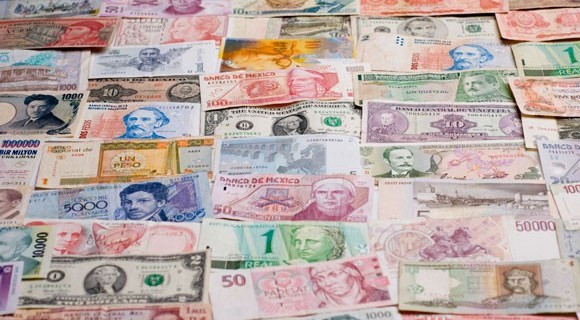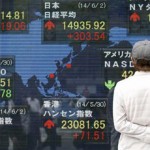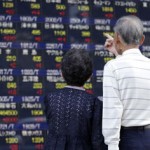Emerging Currencies Rebound With Shares After U.S. Stocks Rally

-
Overseas funds net buyers in South Korea, Taiwan and Thailand
-
Concerns of higher U.S. rates are fading, according to KTB
Emerging-market stocks rose, heading for their biggest gain in more than a week, as an overnight rally in U.S. shares spurred demand for riskier assets after investors had factored in the probability that the Federal Reserve will raise interest rates this year.
Equity markets in India, South Korea and Russia climbed after U.S. stocks advanced on data showing an increase in consumer spending. The won and Taiwan dollar were the best performers among 24 developing-nation currencies, while Hungarian forint, Russian ruble and Malaysian ringgit slid. Demand waned last week on speculation Fed Chair Janet Yellen would signal in Jackson Hole, Wyoming that the central bank was ready to tighten policy.
“The concern about higher U.S. interest rate should be fading now as most investors have discounted the increase,” said Win Udomrachtavanich, chairman of KTB Securities (Thailand) Co. in Bangkok. “The strong rally in the U.S. equities has helped bolster sentiment among emerging markets’ equities. This should encourage more fund inflows into their assets.”

Stocks
The MSCI Emerging Markets Index gained 0.5 percent as of 8:55 a.m. in London. Nine out of 10 industry groups in the developing nations’ measure advanced, led by financial companies. Tencent Holdings Ltd. climbed 1.7 percent in Hong Kong, the biggest jump since Aug. 18.
India’s S&P BSE Sensex Index rose 1.2 percent, climbing for a second day, while Thailand’s SET Index advanced 0.4 percent. South Korea’s Kospi index added 0.4 percent, its first increase in five days. Russia’s Micex index gained 0.3 percent.
The Hang Seng China Enterprises Index added 1.1 percent. China Southern Airlines Co. slid 6.4 percent in Hong Kong, the biggest decline in seven months, after it said profits were dented by the yuan’s depreciation.
Hanjin Shipping Co. shares were suspended from trading after plunging to the lowest price since 2009 following a Yonhap News Agency report that its creditors refused to provide fresh loans in a move that may boost the likelihood of court protection for the company. The shares last traded 24 percent lower before they were halted.
Overseas funds were net buyers this week of stocks in South Korea, Thailand, Vietnam and Taiwan.
Currencies
The MSCI Emerging Markets Currency Index rose 0.1 percent, after sliding 0.7 percent on Monday in its biggest drop since June 24. The won rose 0.5 percent, while Taiwan’s dollar gained 0.3 percent.
The Hungarian forint and Malaysian ringgit dropped 0.3 percent, while the ruble declined 0.2 percent.
Emerging market assets pared losses from last week on speculation the odds of higher U.S. rates are already factored into the market. Yellen said at the central bank retreat in Jackson Hole on Aug. 26 that the case for tightening U.S. monetary policy had strengthened.
Futures indicated a 36 percent chance that the U.S. central bank will raise rates in September as of Monday, up from 24 percent a week earlier.
“Markets decided the September rate hike bets were a tad overdone,” Vishnu Varathan, a senior economist in Singapore at Mizuho Bank Ltd., adding that this helped Asian currencies take back some of the post-Jackson Hole losses.
Source: Bloomberg





























